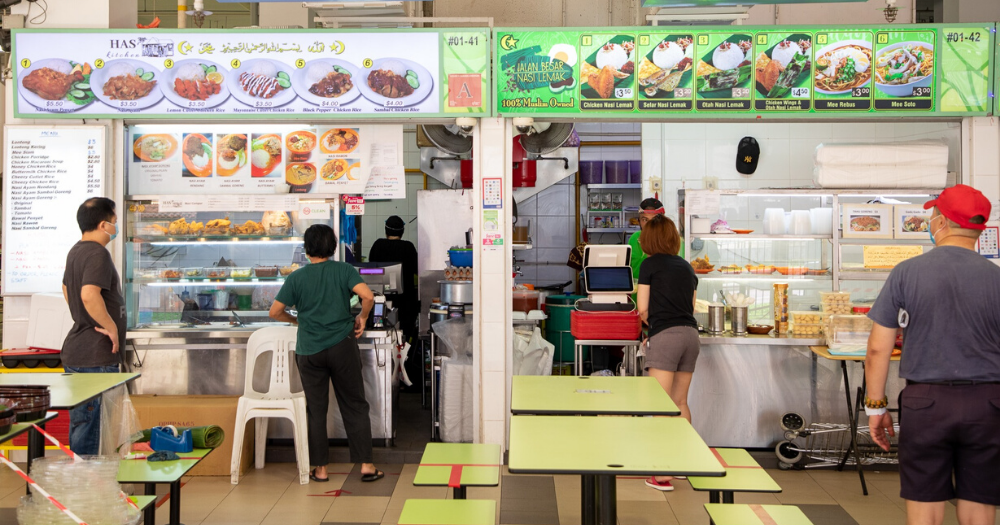The Covid-19 pandemic and the subsequent imposition of the circuit breaker in Singapore have not been kind to local businesses.
Many retail as well as food and beverage (F&B) outlets which relied on high footfall were forced to close due to a drastic drop in customers with the restriction on dine-in services.
529 F&B businesses have closed between Feb. and Apr. 2020, with revenue falling as much as 80 per cent since the start of the outbreak.
Even some of the prominent eateries and cafes—like Modesto's, The Fabulous Baker Boy, and Boufe Cafe—were also at the mercy of the effects of the coronavirus.
Businesses like your mom-and-pop stores and neighbourhood furniture stores are also struggling adapting to the new normal of retail.
Adapting to a new normal
To overcome these limitations, many have devised innovative ways of reinventing themselves to adapt to this “new normal”—by going digital.
Large companies have the resources to rapidly ramp up their digital infrastructure to take online orders and cope with this new demand, and come up with new menu and marketing plans.
For example, online sales currently make up around 85 per cent of all orders for the Les Amis Group, which manages restaurants like NamNam and Tenjin, according to CNA.
To make up for the loss of physical stores and showrooms, furniture retailer Castlery has even turned to an Augmented Reality app which allows customers to visualise how the products look like in their own homes.
Tuition and enrichment centres have also made the quick switch to online classes, with some centres uploading recordings of previous Zoom lessons so students can catch up and replay the lessons on their own.
In contrast, small players like home-grown hawkers and F&B businesses have had to scramble to onboard their businesses to food delivery platforms, in order to claim a portion of the customer pie as Singaporeans seclude themselves at home.
Even traditional wet markets have also had to reinvent their business model during these trying times.
Stallholders at Tekka Market in Little India have turned to live streaming to promote their wares. Customers can then place their orders by commenting on the live stream on a first-come, first-served basis, and make payment via PayNow.
There are also some good willed people out there who wish to help business owners who are not as tech-savvy or lack the sufficient financial capabilities. One such example is non-profit food delivery platform, BySGForSG.The platform helps more senior hawkers who do not have the adequate know-how of technology to go digital.
Other businesses have not fared as well however. Local waxing salon Pink Parlour has been unable to operate at all. Despite efforts to upgrade its e-commerce service, CNA reports that online sales have only managed to account for 10 per cent of its pre-Covid-19 revenue.
A digital post-Covid-19 world is here to stay
In this disrupted world, the shift to digitalisation has become necessary for survival.
With numerous businesses rushing to claim a space in the virtual sphere, there are signs that this digital world is here to stay in the post-Covid-19 landscape.
According to The Straits Times, analysts and companies observed that the e-commerce sector—not surprisingly—experienced a huge boost during the Covid-19 outbreak, a trend which is expected to continue even after restrictions are eased.
The rise in sales include not just groceries and food deliveries, but non-essential items like telecommunications equipment, furniture, games and sports equipment.
"The Covid-19 outbreak will likely be a turning point for e-commerce around the region... as new users become accustomed to the platforms and continue shopping online even when the circuit breaker ends,” Maybank Kim Eng economist Lee Ju Ye told ST.
Retail giant Ikea is able to continue serving its customers even though physical outlets are closed due to its long established online presence for example. Meanwhile, other local furniture retailers are leveraging on Augmented Reality (AR), a technology which they developed a few years ago, to draw customers to their online stores in a different manner.
Therefore, being able to enter the virtual space swiftly and coming up with effective marketing strategies will help businesses to differentiate themselves.
Digital marketing courses
Now the idea of digitalising your business might seem daunting, but it’s actually not as complicated or elaborate as you might believe.
Establishing an online presence can be as simple as setting up social media accounts on Facebook and Instagram—after all, that’s where most people discover the best deals and goodies and share it with their friends.
But it’s precisely how you market your goods or products on these platforms that can make or break your business.
Also, if you find terms like “UX design”, “digital marketing” and “web development” unfamiliar, the first step is perhaps to find out what the heck they mean and what they entail.
This is where Smartcademy comes in — a local digital educator which offers courses on these industry-relevant tech skills.
Here’s how retailers, restaurant owners and hawkers take the initial step to digitalise their businesses.
 Screenshot from Smartcademy.
Screenshot from Smartcademy.
Digital marketing is one of the courses offered, where individuals and corporates alike can participate in six three-hour lessons to upskill themselves.
The courses will be conducted webinar-style for the July-intake and will impart participants with knowledge on the fundamentals of digital marketing.
 A class conducted at Smartcademy (for illustration purposes only). Photo from Smartcademy.
A class conducted at Smartcademy (for illustration purposes only). Photo from Smartcademy.
Getting a better grasp of marketing helps business owners reinvent their businesses during these tough times.
Aside from digital marketing, Smartcademy offers other digitalisation courses which introduces participants to user experience design, web app development and mobile app development.
These are various skill sets that might be nifty for you to create an online presence for your business. Or if you are hiring an external vendor to set up your business, it will be useful to understand what they are tinkering with on your website or social media account.
While you might think all is well now as Singapore has moved into Phase 2 since June 19, the country isn’t out of the rut yet.
Considering the recession Singapore is slipping further into and with unemployment rate at an all time high, coupled with the up and coming relevance of tech and ICT, individuals can future-proof and protect themselves against any disruptions to the economy by upskilling.
Eligible Singaporeans and Permanent Residents can also apply for up to 90 per cent course fee support (subject to terms and conditions), to upskill yourself at Smartacademy.
You can find out more here.
This sponsored article by Smartcademy made the author realise the necessity of always improving oneself.
Top photo from NEA / FB
If you like what you read, follow us on Facebook, Instagram, Twitter and Telegram to get the latest updates.
